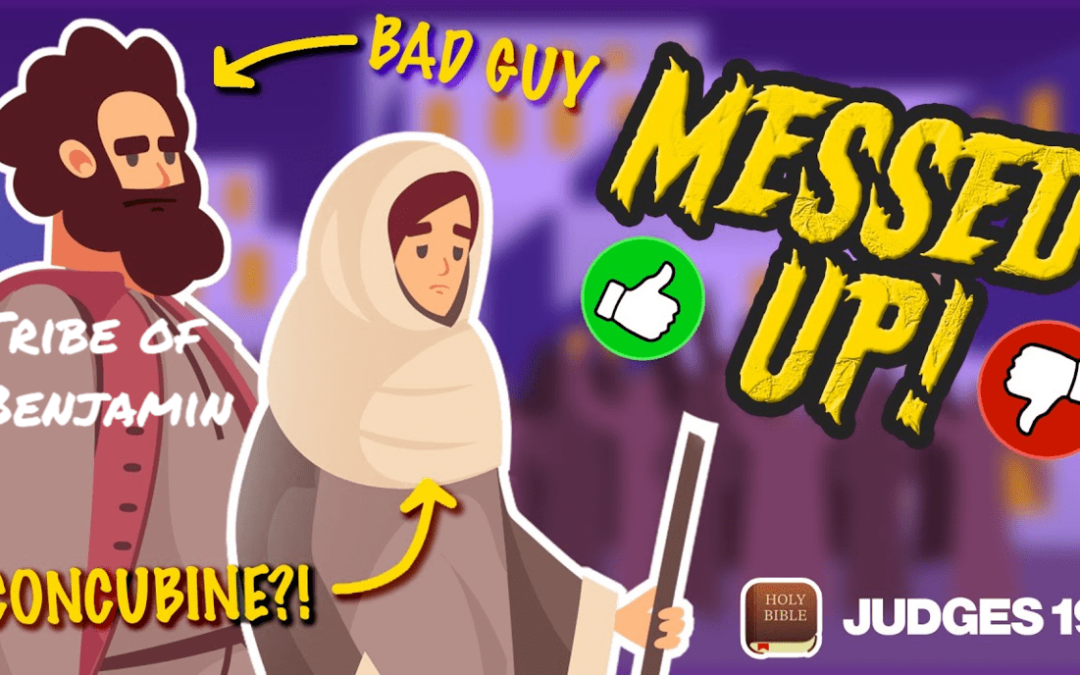The Most Horrific Bible Story Concerning Tribe of Benjamin

“In those days, there was no king in Israel.” This line, repeated throughout Judges, frames the horrific tale of the Levite and his concubine. The grim details of this story showcase the anarchy and spiritual decay of the period, but this story is not just a cheap thriller.
The Events in the Story
In Judges 19–20, a Levite is retrieving his fugitive concubine from her father’s house in Bethlehem, located in the tribal territory of Judah.
The concubine’s father, who is from Judah, treats the Levite with warm hospitality.
The Levite and his concubine travel home to Ephraim. On the way, he has the option to stay in the city of Jebus, a Benjamite territory.
He decides not to remain since Jebus is under the rule of Gentiles, non-Hebrews.
He journeys on to Gibeah, also a Benjamite territory. In Gibeah, an old man—also from Ephraim—offers refuge to the Levite and his concubine (19:15–16).
A throng of wicked men surround the old man’s house and demand that the Levite be surrendered to them so they could molest him.
The old man offers his virgin daughter and the Levite’s concubine to them to avoid their disgraceful demand, but they refuse (19:23–25).
The Levite forces his concubine outside to satisfy them. He finds her dead at the door of the house the next morning. Without a hint of remorse or compassion, he piles her on his donkey (19:25–28).
After arriving home, the Levite cuts her body into 12 pieces and sends a piece to each Israelite tribal territory. He is summoning tribal leadership to meet and decide on retaliation (19:29–20:7).
All the tribes are outraged, except one. The tribe leaders of Benjamin, in whose territory Gibeah is located, boycott the assembly and refuse to surrender the men of Gibeah (20:2–3, 12–13). The result is a fratricidal war, and all but 600 men of Benjamin are annihilated (20:14–48).
What Does This Teach Us?
When reading this story, our attention fixates on the grim details of murder, rape, war and abduction. But there are crucial, less repugnant elements—tribal affiliations and the locations of events. The story was designed to prompt readers into favoring kingship—the people needed a Messiah, a savior.
The Levite is shown warm hospitality in Judah, David’s tribe.
The Levite could have stopped in Jebus—which is later known as Jerusalem. It is a missed oasis in the hellish sea of Benjamin.
The Benjamite rapists of Gibeah are clearly wicked. Saul, the first king of Israel, belonged to the tribe of Benjamin.
The Levite, from Ephraim, is a villain. Ephraim is associated with the renegade northern kingdom of Israel that forsook the line of God’s anointed, David. The old man, also from Ephraim, is yet another villain.
The Benjamite leaders that refuse to attend the tribal assembly and turn over the men of Gibeah are wicked.
The book of Judges does not name its author; it was likely written after the time of David. All of these elements add up to not only a rationale for kingship—but a polemic for the superiority of a king from Judah (David), not Benjamin (Saul) or Ephraim.
By the time Judges was being written, Saul had failed God as a spiritual leader. Anyone reading the story would be prompted to follow God’s new choice of kingship, the line of David. Any other ruler would spell chaos, evil and tragedy.
» QUICKBITS:
This story mirrors the events in Genesis 19. The men of Sodom surrounded Lot’s house and demanded the visiting men—actually angels—be handed over. Lot offered his two virgin daughters instead. Because of their wickedness, Sodom was destroyed. Does this mean that God will destroy Gibeah too? The story shows the dire need for a king.
The appalling nature of this story provides an appropriate context for God’s plan of redemption. It sets the worst of human nature against the need for divine rule. That would come in Old Testament times in the form of David, the chosen king, the man after God’s own heart. And from David, God would produce the King of kings, Jesus, whose mission was to save all humanity, not just Israel, from the curse of sin.
Article courtesy of Bible Study Magazine published by Faithlife Corporation. Originally published in print, Vol. 3 No. 5

